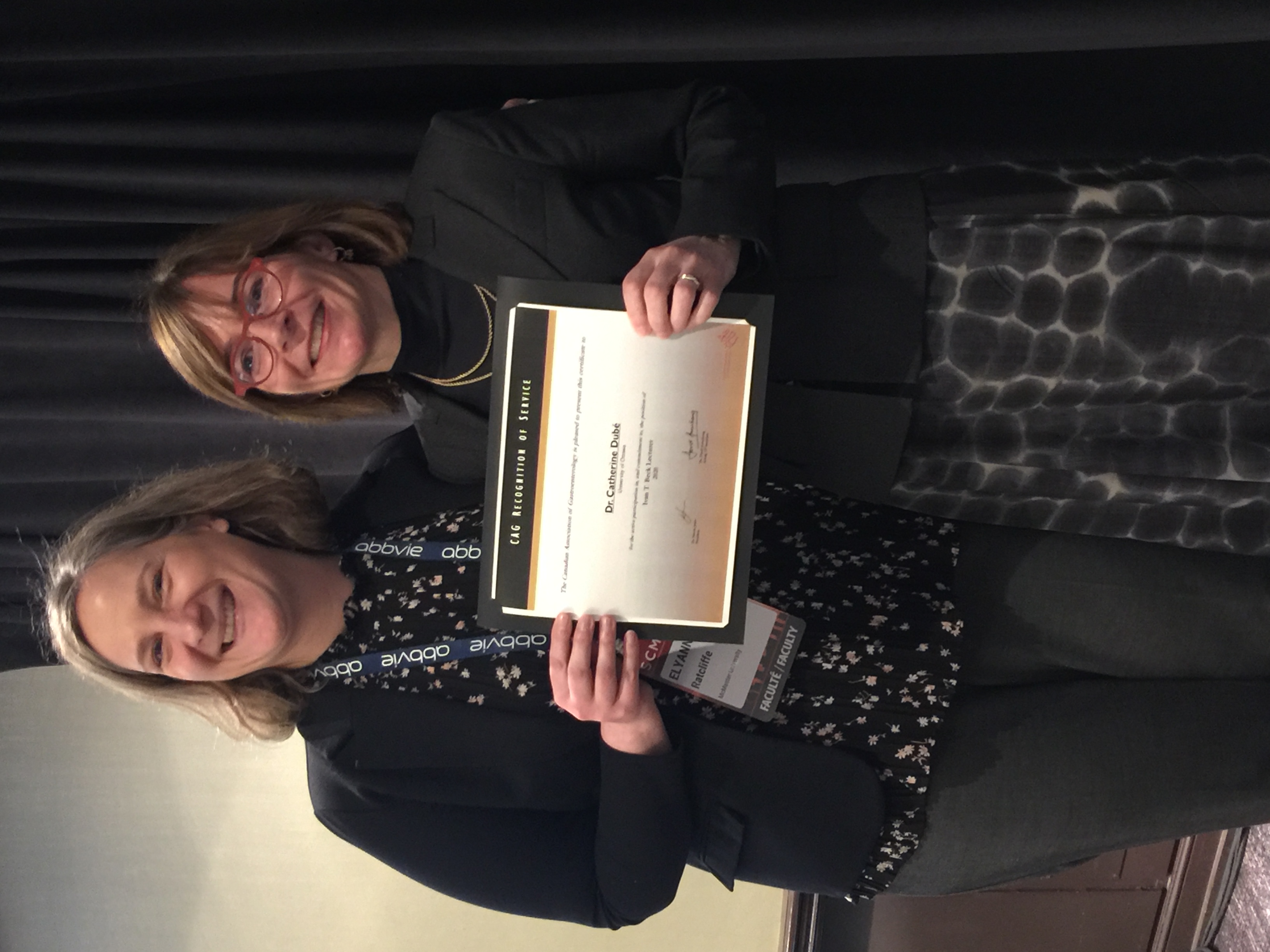The Gastroenterology Residents-in-Training (GRIT) Course is held during CDDW™, in advance of the CDDW™-CLM conference. This three-day course is designed to provide trainees with the chance to:
- Present their data orally or as a poster
- Cover timely topics of interest and obtain up-to-date information in a context that allows critical evaluation
- Interact and network with other residents - an opportunity rarely available given the size of the country, AND
- Interact closely with a small number of recognized, effective Canadian teachers.
Application Requirements
- Be a CAG Trainee Member or CASL Trainee Member at the time of abstract submission or will have applied to become one by December 1, 2024.
- The applicant’s supervisor must be a current CAG member of good standing.
- The GRIT program is intended for GI and hepatology residents in their 1st and 2nd years of training.
- All applicants must identify themselves as the abstract’s presenting author in order to be considered for this course
- DEADLINE: The deadline for electronic abstract submission is October 15, 2024 at 11:59 PM ET at which time the system locks. Abstracts in draft will not be accepted after the deadline, nor can any changes be made.
- GRIT is a competitive program with limited space. Invitations will be issued to individuals whose abstract is selected by the review committee. Abstracts must contain original research with results reviewers can evaluate (‘results to follow/to be presented’ is not acceptable); case reports that include a review of the literature will be considered for 1st-year residents only.
- Only new data that has NOT been previously published or presented at another meeting may be submitted. If you add new data/findings to your previously published/presented abstract then it is eligible for submission to both GRIT and CDDW™.
- In submitting your GRIT abstract you are agreeing (if accepted) to attend and present your abstract at CDDW™. Registration to attend CDDW™ is required and is a separate process from submitting an abstract. You are not required to register prior to submitting an abstract, however, if accepted into the GRIT program you must register for CDDW™.
- If you accept an invitation to attend GRIT your supervisor will be notified of any absence you have from the program and they in turn will be invoiced $500 per day (or any portion thereof) that you miss. Space is limited and the organizers wish to ensure that only those committed to attending the program in its entirety accept an invitation to attend (the approximate cost for CAG for each participant is $2,000).
- You MUST include a letter and will be prompted to do so during your abstract submission, from your Program Director or GI Department Head which: 1) confirms the program in which you are registered and your year of training, e.g. PGY level, and 2) confirms that he/she has reviewed, and approved your abstract submission and acknowledges that you have done the majority of the work.
- Only one (1) GRIT abstract submission per applicant.
- Your GRIT abstract will automatically be submitted to the CORE program, DO NOT submit the abstract to the CORE program as well.
Abstract System is CLOSED
2024 Award Recipient
Dr. Robert Bailey
University of Alberta, Edmonton, AB
Ivan T. Beck Memorial Lectureship
The Ivan T. Beck Memorial Lectureship is an annual lecture presented at the GRIT course by the deserving lecturer selected by the GRIT Organizing Committee.
Dr. Ivan Thomas Beck, a ‘founding father’ of CAG, passed away on November 6th, 2010. Dr. Beck was born in Budapest, Hungary in 1924. He received his MD degree from the University of Geneva in 1949 and subsequently emigrated to Canada where he completed both his post-graduate clinical training and PhD at McGill University. He then took up a faculty position in the Department of Pharmacology at McGill from 1958-66. He was recruited to Queen’s University in 1966 to head up a new Digestive Diseases Unit at Hotel Dieu Hospital. He remained an active faculty member at Queen’s until his death 45 years later.
Dr. Beck’s passion for the science and practice of Gastroenterology was unparalleled, and this translated into a career spanning over 50 years and marked by extraordinary accomplishments. While at McGill he established the first clinical gastrointestinal motility laboratory in Canada. Shortly after arriving at Queen’s he created a clinical unit that integrated nurses, dieticians and other allied health members into decision-making. This collaborative care model was decades ahead of its time. He was an outstanding researcher, holding continuous funding from the Medical Research Council (now the Canadian Institutes of Health Research) for over 30 years and publishing close to 250 peer-reviewed papers, reviews and book chapters during his career. In addition to seminal basic science work on pancreatitis, small bowel absorptive function, intestinal microcirculation and the pathophysiology of alcohol-induced small bowel injury, he made numerous clinical research contributions in areas as diverse as noncardiac chest pain and cholera. In later years, he became interested in the history of medicine and published several scholarly works in this area. Indeed, he served as the CAG archivist for over 20 years, during which time he meticulously documented the history of the CAG and Canadian Gastroenterology.
Dr. Beck was also an outstanding clinician and educator, winning numerous national and international awards. His track record as clinician-scientist and educator translated into visiting professorships in countries on every continent. Despite all these accolades, he was most proud of his mentorship of countless clinicians and scientists over the course of his career, many of whom went on to distinguished careers of their own.
Dr. Beck took on numerous administrative and leadership roles during his career. He worked tirelessly for the CAG since its inception in 1962, serving as the first secretary of the Association and then as President in 1967-68. In 1994 he also co-founded the Canadian Digestive Health Foundation (CDHF). Despite all these achievements in his professional life, he maintained numerous outside interests. He was a gifted painter, avid reader, sailor and swimmer, and a dedicated family man. His passing marked the end of an era in Canadian Gastroenterology. He is dearly missed by his family, friends and colleagues from around the world.
Dr. Ivan Thomas Beck, a ‘founding father’ of CAG, passed away on November 6th, 2010. Dr. Beck was born in Budapest, Hungary in 1924. He received his MD degree from the University of Geneva in 1949 and subsequently emigrated to Canada where he completed both his post-graduate clinical training and PhD at McGill University. He then took up a faculty position in the Department of Pharmacology at McGill from 1958-66. He was recruited to Queen’s University in 1966 to head up a new Digestive Diseases Unit at Hotel Dieu Hospital. He remained an active faculty member at Queen’s until his death 45 years later.
Dr. Beck’s passion for the science and practice of Gastroenterology was unparalleled, and this translated into a career spanning over 50 years and marked by extraordinary accomplishments. While at McGill he established the first clinical gastrointestinal motility laboratory in Canada. Shortly after arriving at Queen’s he created a clinical unit that integrated nurses, dieticians and other allied health members into decision-making. This collaborative care model was decades ahead of its time. He was an outstanding researcher, holding continuous funding from the Medical Research Council (now the Canadian Institutes of Health Research) for over 30 years and publishing close to 250 peer-reviewed papers, reviews and book chapters during his career. In addition to seminal basic science work on pancreatitis, small bowel absorptive function, intestinal microcirculation and the pathophysiology of alcohol-induced small bowel injury, he made numerous clinical research contributions in areas as diverse as noncardiac chest pain and cholera. In later years, he became interested in the history of medicine and published several scholarly works in this area. Indeed, he served as the CAG archivist for over 20 years, during which time he meticulously documented the history of the CAG and Canadian Gastroenterology.
Dr. Beck was also an outstanding clinician and educator, winning numerous national and international awards. His track record as clinician-scientist and educator translated into visiting professorships in countries on every continent. Despite all these accolades, he was most proud of his mentorship of countless clinicians and scientists over the course of his career, many of whom went on to distinguished careers of their own.
Dr. Beck took on numerous administrative and leadership roles during his career. He worked tirelessly for the CAG since its inception in 1962, serving as the first secretary of the Association and then as President in 1967-68. In 1994 he also co-founded the Canadian Digestive Health Foundation (CDHF). Despite all these achievements in his professional life, he maintained numerous outside interests. He was a gifted painter, avid reader, sailor and swimmer, and a dedicated family man. His passing marked the end of an era in Canadian Gastroenterology. He is dearly missed by his family, friends and colleagues from around the world.
Previous Ivan T. Beck Memorial Lecturers
| Year | Name | Lecture Title |
|---|---|---|
| 2023 | Anne Griffiths | Present Reflections and Future Horizons in IBD |
| 2022 | Stephen Vanner | Then and Now - GI in Canada & the road to GRIT |
| 2021 | Robert Enns | Obscure GI Bleeding |
| 2020 | Catherine Dubé | Colonoscopy Quality, Adenomas, and the Proverbial Tree |
| 2018 | Jamie Gregor | Three Decades of Debunking Dogma |
| 2017 | Kenneth Croitoru | A journey in a yellow wood – a road less travelled |
| 2016 | Charles Bernstein | Using Epidemiology to Pursue Etiology in IBD |
| 2015 | Stephen Collins | IBS and Me |
| 2014 | Alan Barkun | Am I Really Managing Patients with Upper GI Bleeding in an Evidence Based Manner? |
| 2013 | Jonathan Meddings | Careers in Gastroenterology- and an introduction to the leaky gut |
| 2012 | Eve Roberts | How Do We Think about Science? |
| 2011 | William Paterson | Etiopathogenesis of Gastroesophageal Reflux Disease: Information in Search of Knowledge |
| 2010 | Norman Marcon | Advancing the Endoscopic Limits: ESD or EMR for the Management of Esophageal Dysplasia and Early Cancer |
| 2009 | Peter Durie | Cystic Fibrosis – Current Understanding and Emerging Challenges |
| 2008 | Desmond Leddin | Ethical Obligations and National Borders |
| 2007 | Alan BR Thomson | Standing on the Shoulders of Giants |
| 2006 | Gary Levy | Reflections on a Career in Research in Gastroenterology: Moving from Me to We |
| 2005 | Khursheed Jeejeebhoy | Teaching: Why and How |
| 2004 | Richard Hamilton | Beyond the Cocoon: Some Plain Talk about Careers |
| 2003 | Richard Hunt | Evidence Based Gastroenterology: Expectations and Realities |
| 2002 | Jenny Heathcote | A Prescription for an Exciting Career in Academic Medicine |
| 2001 | W Grant Thompson | TLC (Tender Loving Care) |
| 2000 | C Noel Williams | Crohn’s Disease through the Ages |
| 1999 | Eldon Shaffer | Technology in Gastroenterology: Friend or Foe? |
| 1998 | J Joseph Connon | The Teaching of Teachers |
| 1997 | Claude Roy | Effect of Essential Fatty Acid Deficiency and Peroxidized Lipids on Peroxisomal Function |
| 1996 | Carl Goresky | Training of Future Academic Gastroenterologists: Is It Still Possible? (Due to Dr. Goresky’s illness Dr. J. Joseph Connon delivered the Lecture) |

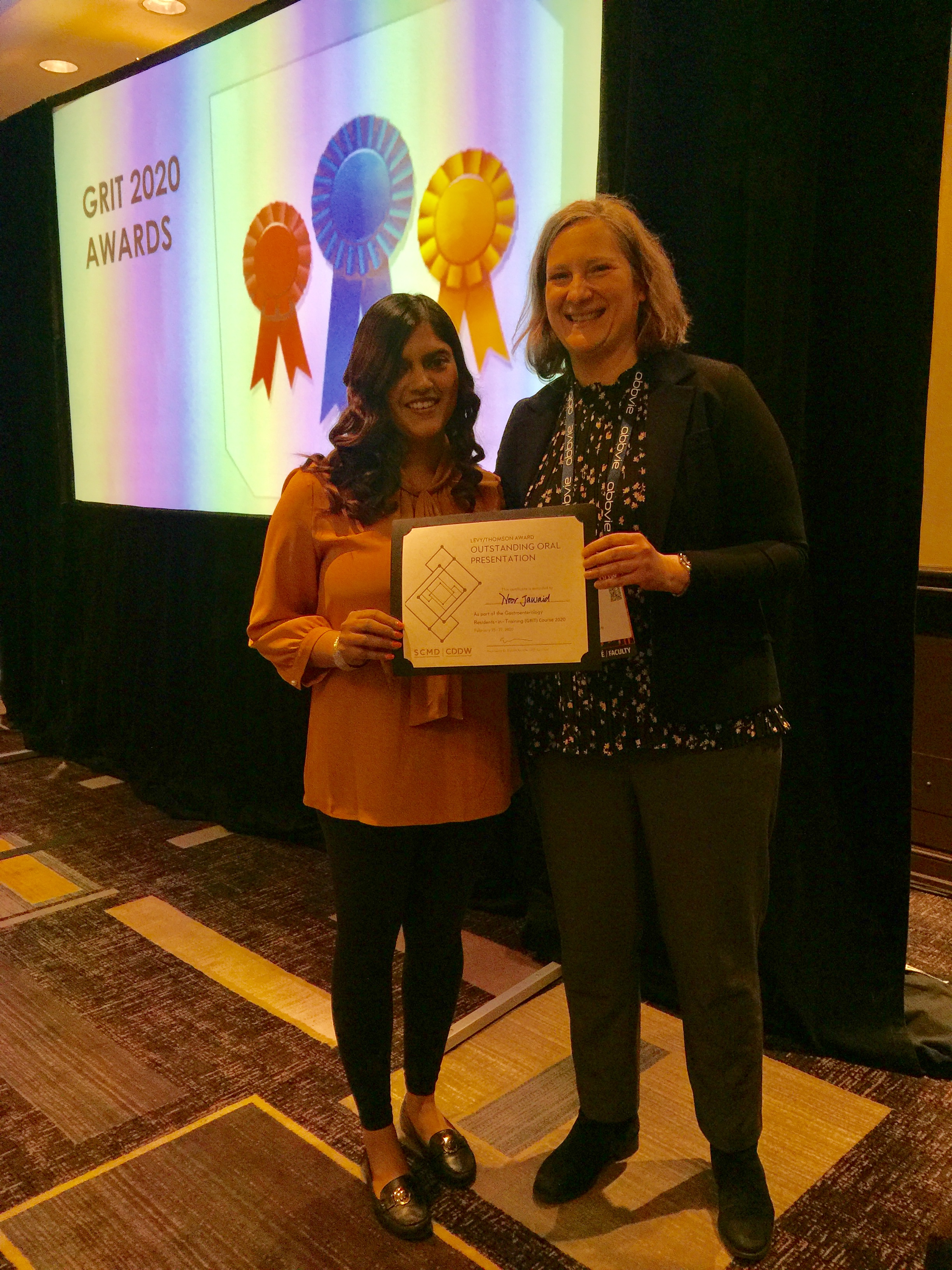 Noor Jawaid, University of Toronto
Noor Jawaid, University of Toronto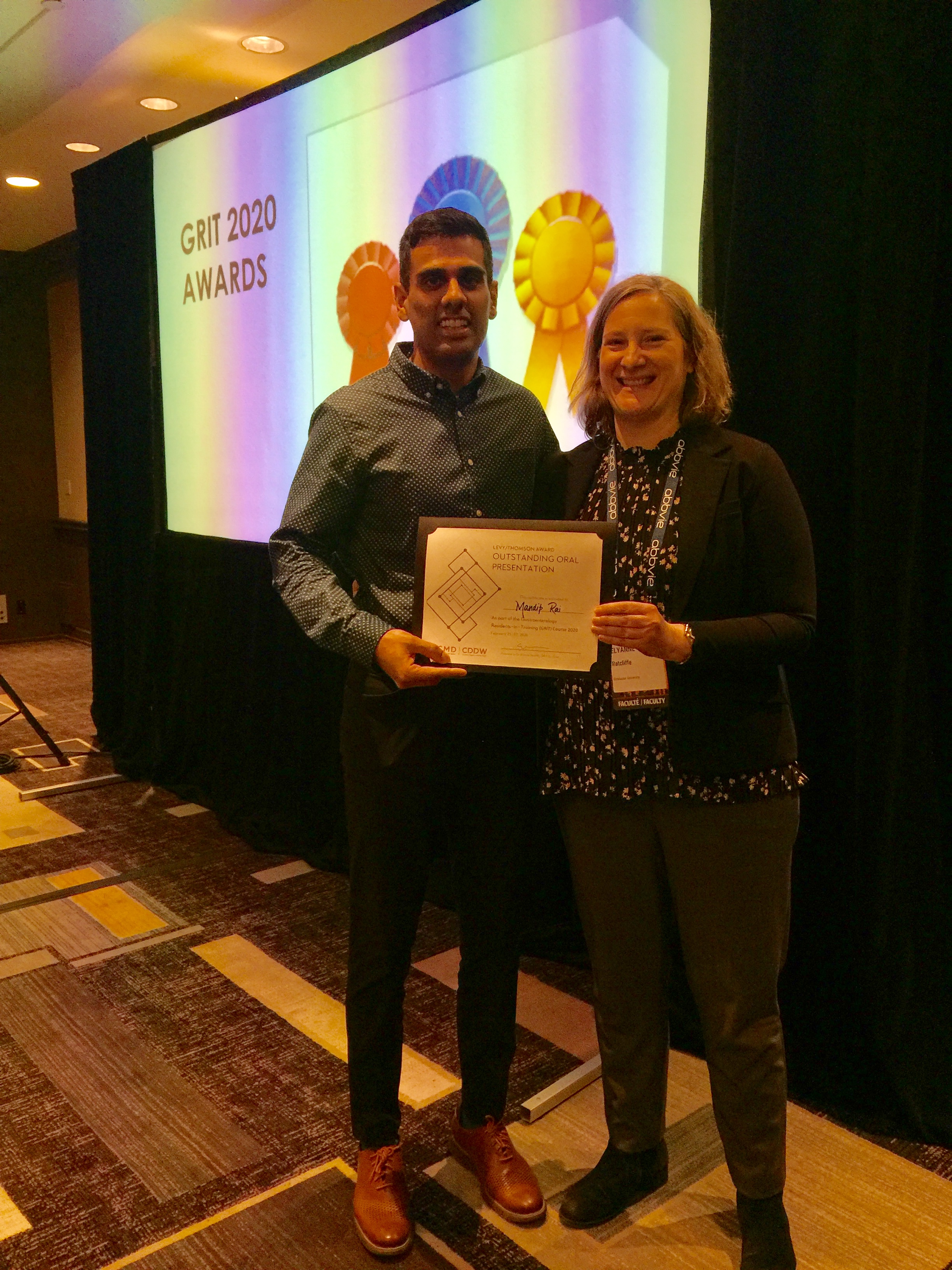 Mandip Rai, Queen’s University
Mandip Rai, Queen’s University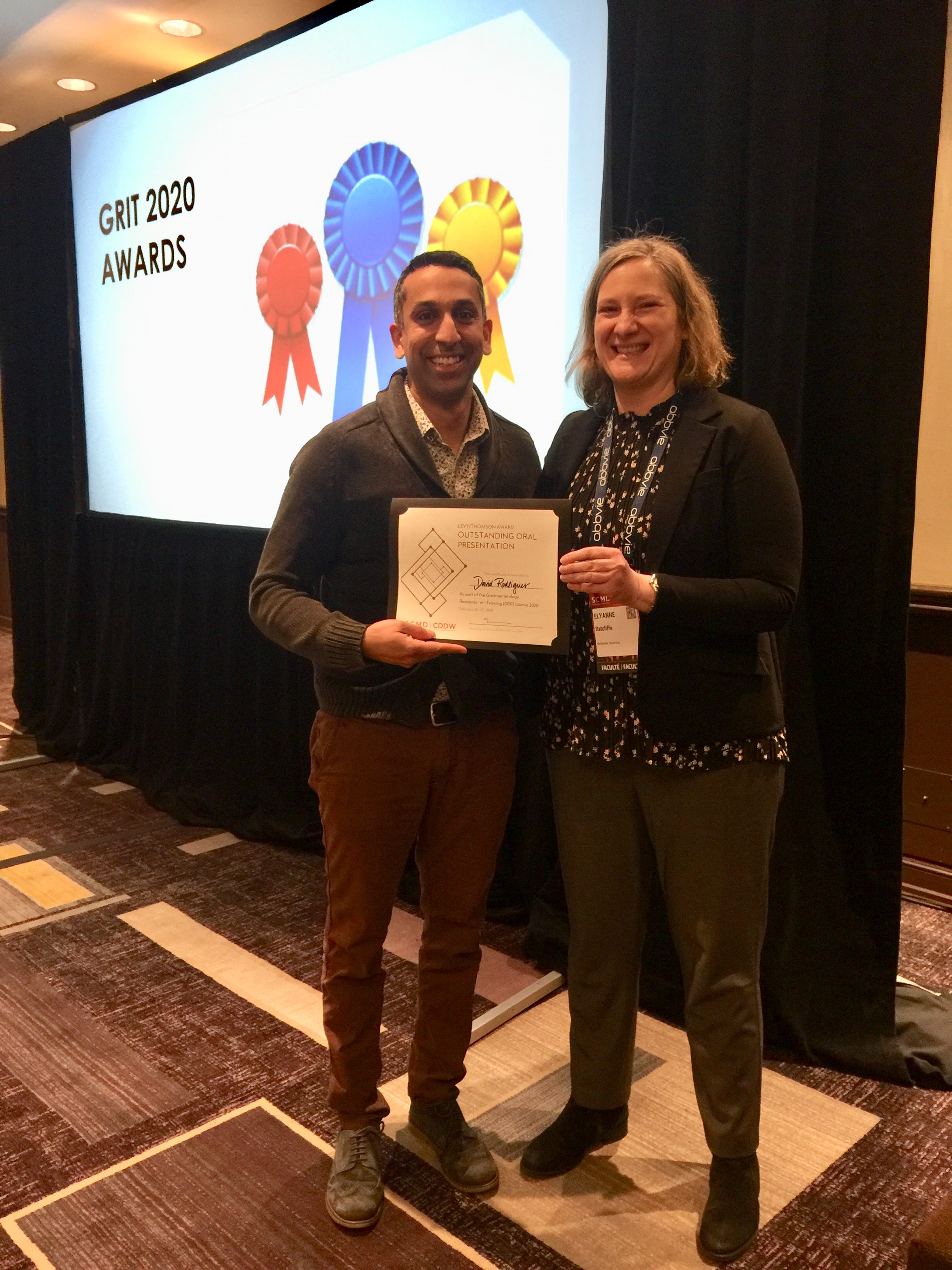 David Rodrigues, Queen’s University
David Rodrigues, Queen’s University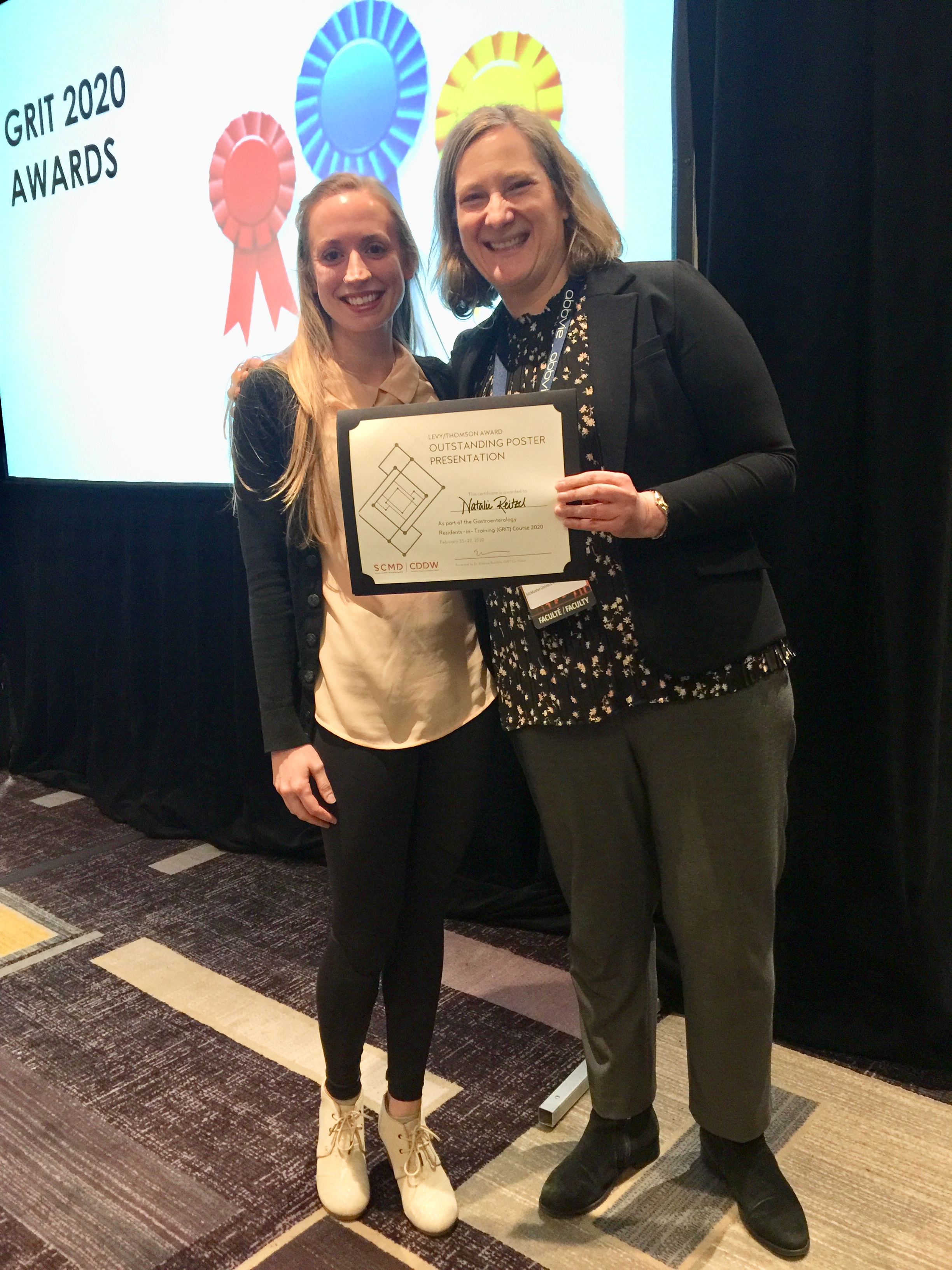 Natalie Reitzel, McMaster University
Natalie Reitzel, McMaster University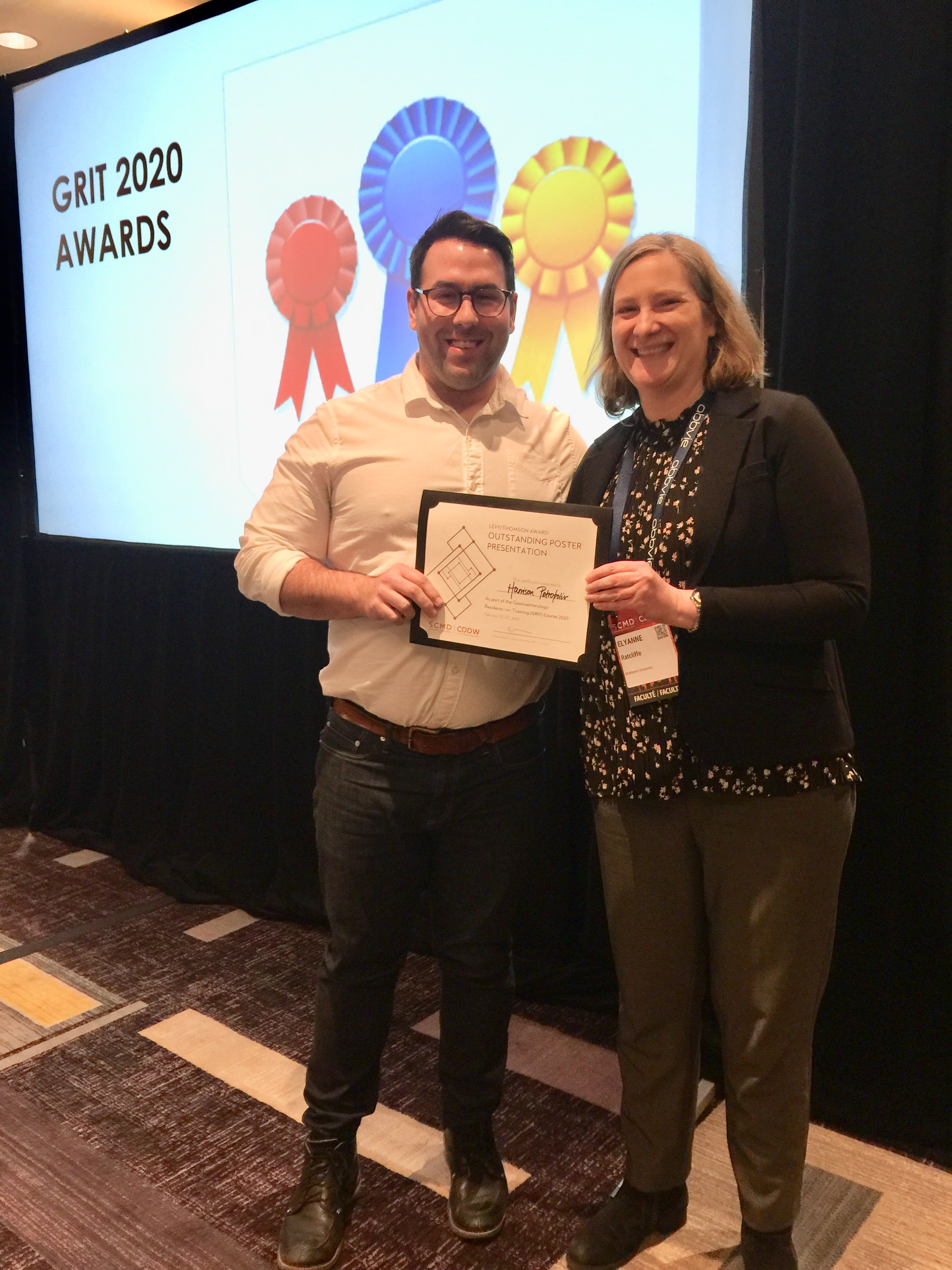 Harrison Petropolis, Dalhousie University
Harrison Petropolis, Dalhousie University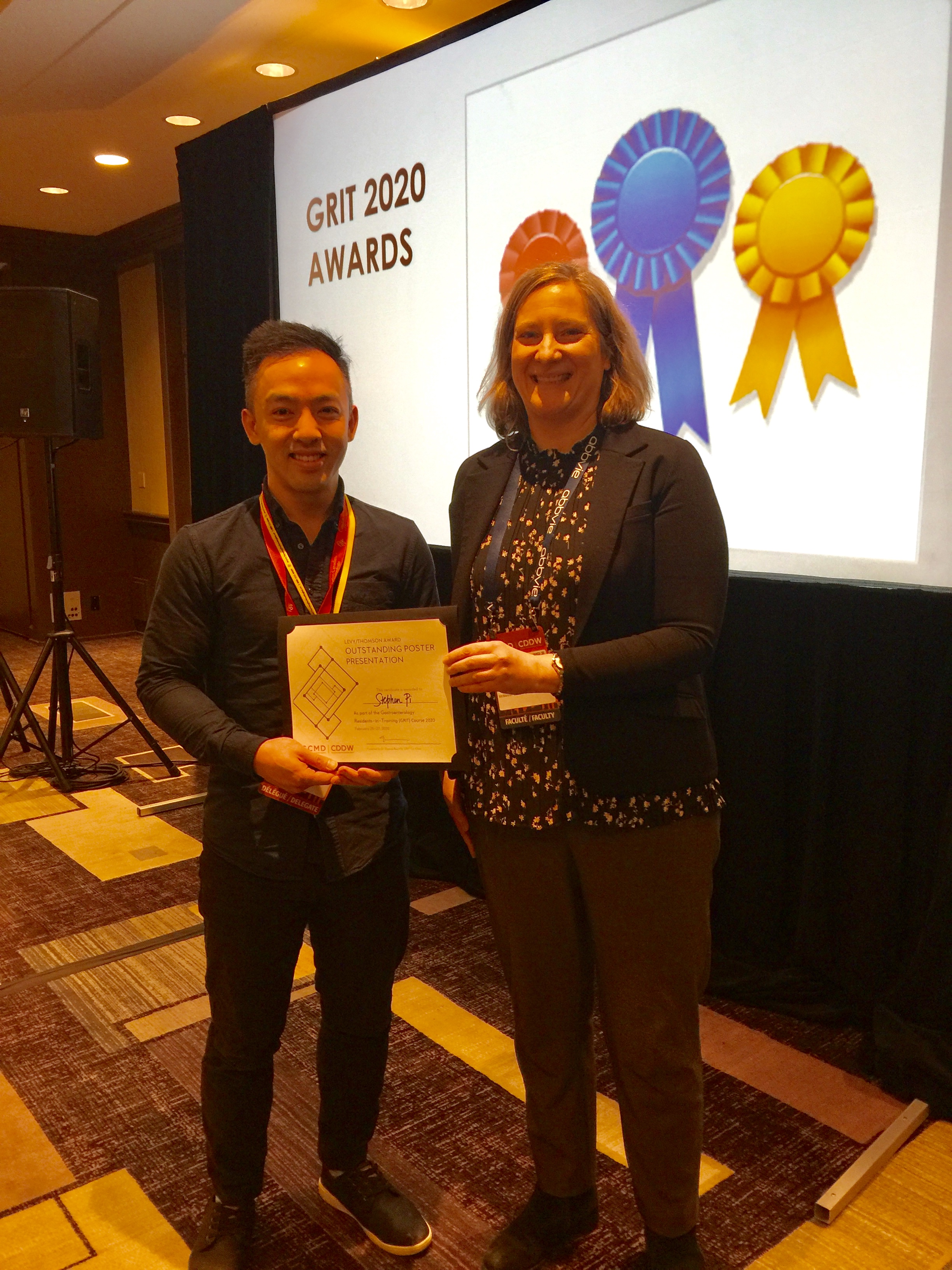 Steven Pi, University of British Columbia
Steven Pi, University of British Columbia.JPG)
.JPG)
